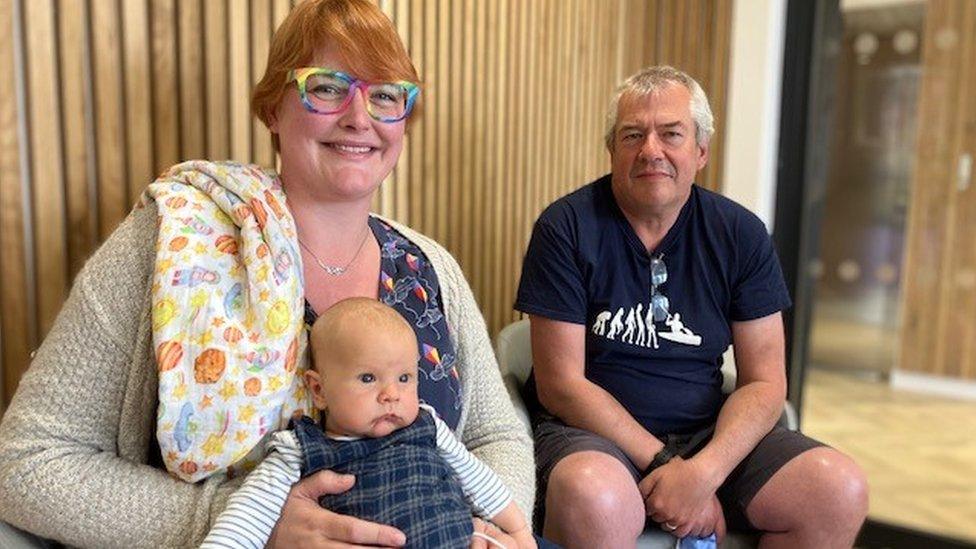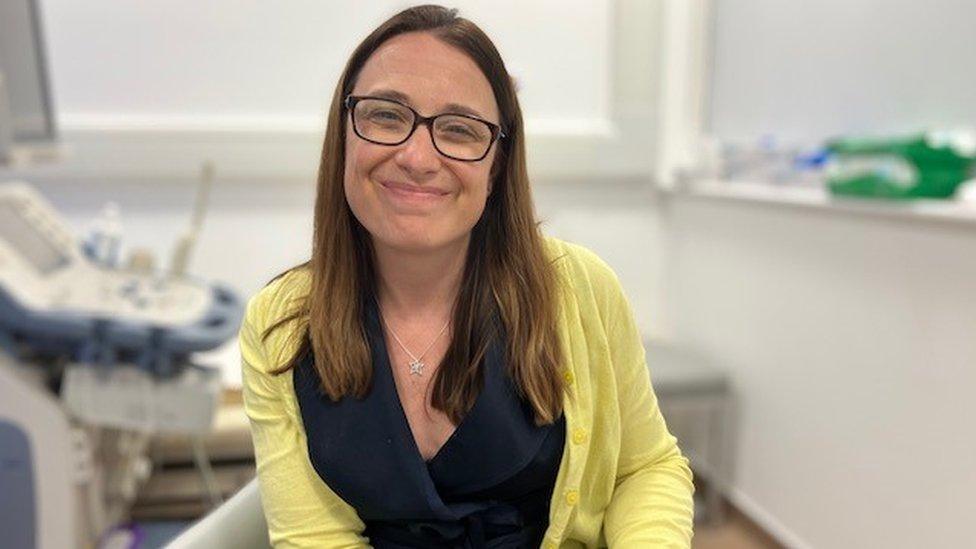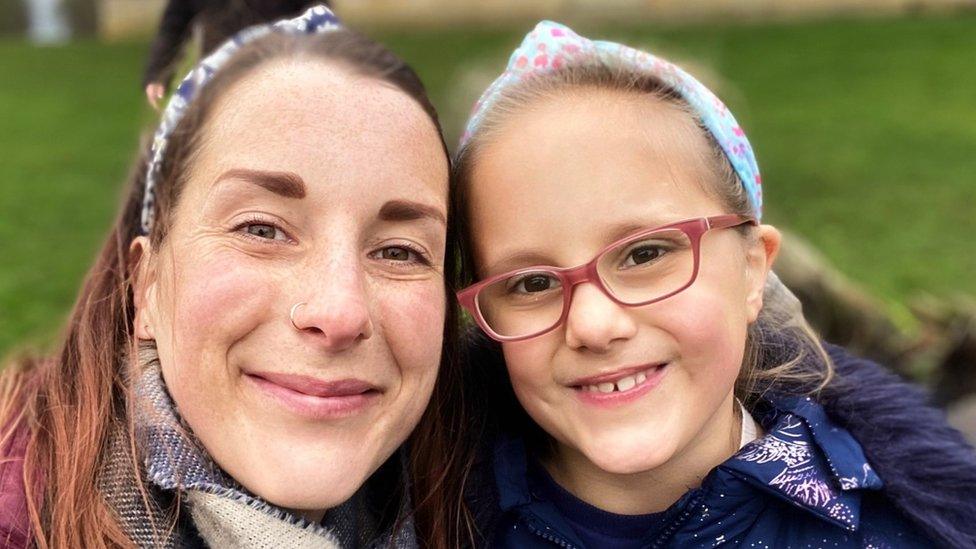Bristol researchers recruit IVF couples in fertility study
- Published

Baby Odi was conceived via Intracytoplasmic sperm injection (ICSI)
Some 1,500 couples are being sought to take part in an IVF fertility study.
University of Bristol researchers are looking into the factors affecting IVF treatment success to help doctors predict more accurately how successful prospective patients might be.
Parents taking part in the project said it would be "good" for others to learn from their experiences.
Beth from Bristol used IVF to conceive her daughter Pippa, but said she found the whole process "horrendous".
"You can do everything right, everything that the doctor says and still, at the end of the day, you can have a negative outcome," she said.
"We lost two, but actually at the end of losing those two, that data has hopefully gone to do some good for people."
Matt, from Bristol had a vasectomy reversal and used IVF to conceive his baby Odi.
He said: "I think it's good for other people to know and learn from our experiences."
University of Bristol Dr Amy Taylor said her team would take some measures before they started treatment as part of the "ground-breaking" study.
"So blood samples, height, weight and blood pressure," she said.
"The idea around this is to look at whether pregnancy is the same for IVF pregnancies compared to non-IVF pregnancies.
"Also to follow these people for several years to look at health outcomes for both the parents and the children conceived from IVF."

Dr Amanda Jefferys said the study would also look at male sperm
Bristol Centre for Reproductive Health medical director Dr Amanda Jefferys said they would also collect data from the male partners.
"The male partner unfortunately is perhaps often ignored in research studies so we will be looking at his sperm parameters, his lifestyle and medical history to see what extent that's impacting as well," she said.
Organisers said women and their partners undergoing IVF or intracytoplasmic sperm injection (ICSI) treatment at the Bristol Centre for Reproductive Medicine were eligible to take part.

Follow BBC West on Facebook, external, Twitter, external and Instagram, external. Send your story ideas to: bristol@bbc.co.uk , external
- Published31 January 2022

- Published5 May 2022
